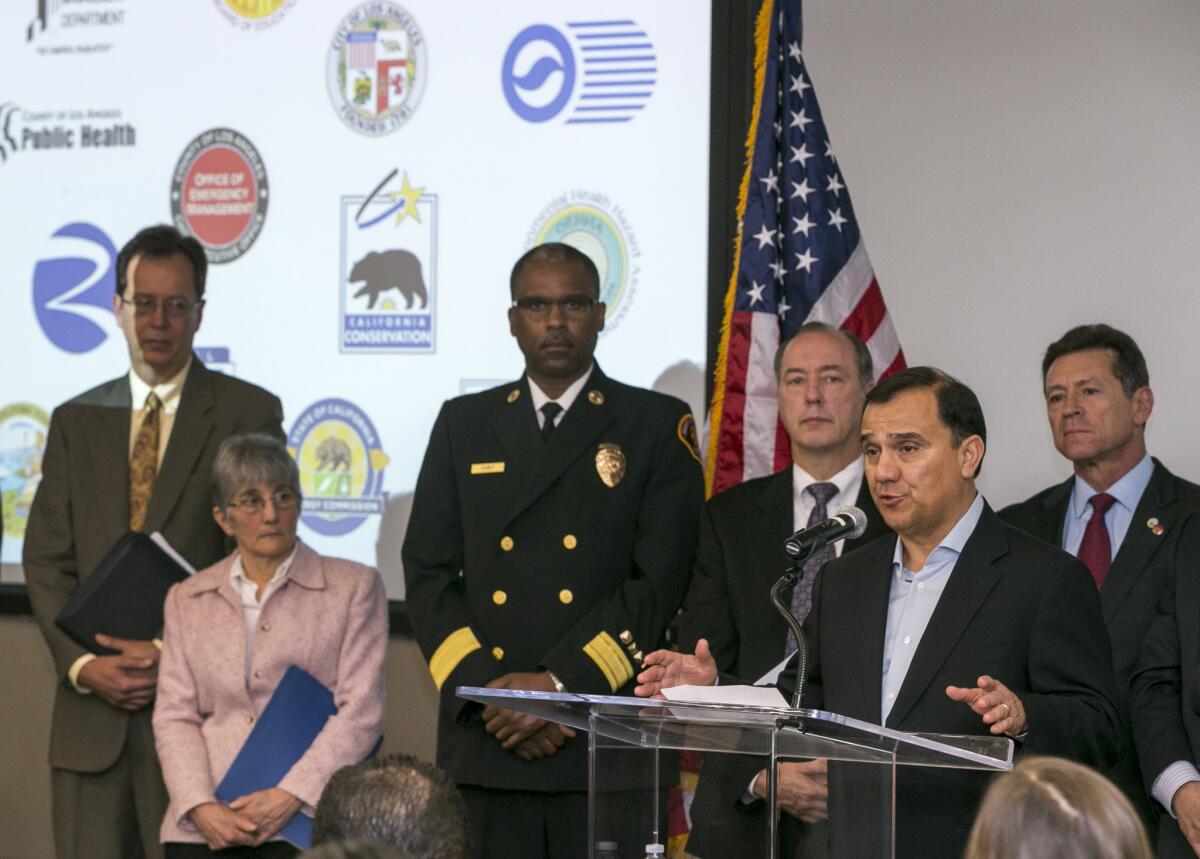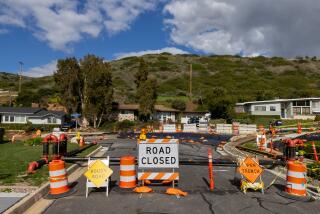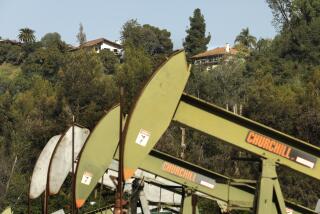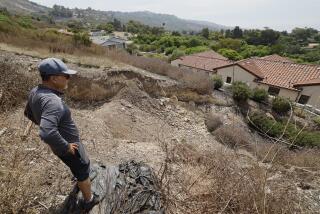Editorial: Ignoring its promises, SoCal Gas intends to offset Porter Ranch leak on its own terms

SoCalGas CEO Dennis Arriola, at podium, takes questions from the media during a news conference on Feb. 18.
Even before Southern California Gas Co. plugged the damaged storage well blamed for the worst methane leak in U.S. history, its executives promised to fully offset the emissions released during the break. It was a big commitment that the utility’s leaders said proved the company was a good neighbor and responsible corporate citizen.
Gov. Jerry Brown attempted to hold SoCal Gas to its word with an emergency proclamation in January. He directed regulators to develop a program, to be funded by the utility, that would cut greenhouse gas emissions in the state. Now that the California Air Resources Board has prepared that program, however, the utility has balked.
The state asked SoCal Gas to underwrite only projects that cut pollution in California, especially around Porter Ranch where residents suffered most from the leak. The utility said no, arguing that climate change is a global problem and so the location of the project is irrelevant. The state asked SoCal Gas to move quickly and pay for projects that cut pollution within five to 10 years. The utility said no, that time frame is arbitrary. The state asked SoCal Gas to focus on cutting methane emissions. The utility said no, it should have the flexibility to pursue any project that cuts greenhouse gases.
The state said that if SoCal Gas funds projects that cut greenhouse gases other than methane, the projects must reduce emissions enough to the offset the damage done by methane — which has 84 times the heat-trapping power of carbon dioxide — in the short term. Because the Aliso Canyon leak released an estimated 100,000 tons of methane, SoCal Gas should reduce about 8 million tons of carbon dioxide. The utility said no, arguing that other state programs require offsets based on the long-term effect of methane. Under that approach, the target would be 2.8 million tons of carbon dioxide. That’s significantly less emission reduction than state officials want.
SoCal Gas made its position clear in a letter to the air board: The mitigation plan is voluntary and the utility will make good on its pledge in any way it sees fit.
The company appears to be correct. When they crafted California’s ambitious greenhouse gas reduction program, state officials chose not to regulate leaks from natural gas storage facilities. Only in recent years have scientists recognized methane’s power to hasten climate change, and policymakers haven’t yet caught up. So Brown and the air board don’t seem to have the right to demand how, where or when the company offsets its emissions. The result is that SoCal Gas’ vaunted mitigation plan might reduce emissions significantly less than community members and environmentalists believe they are owed.
That could change. Los Angeles City Atty. Mike Feuer filed a lawsuit against the utility in December that, if successful, could force SoCal Gas to mitigate the leak’s climate impacts on the state’s terms.
But even if SoCal Gas is right about what the law requires it to do, its position is still hugely disappointing. Company leaders repeatedly said they recognized the tremendous impact the leak had on both Porter Ranch and on California’s effort to cut greenhouse gas emissions. Chief Executive Dennis Arriola said the company would work with state regulators to develop a mitigation plan. The company ought to follow through on the letter and the spirit of its promise to fully repair the damage of the Aliso Canyon leak.
Follow the Opinion section on Twitter @latimesopinion and Facebook
More to Read
A cure for the common opinion
Get thought-provoking perspectives with our weekly newsletter.
You may occasionally receive promotional content from the Los Angeles Times.










